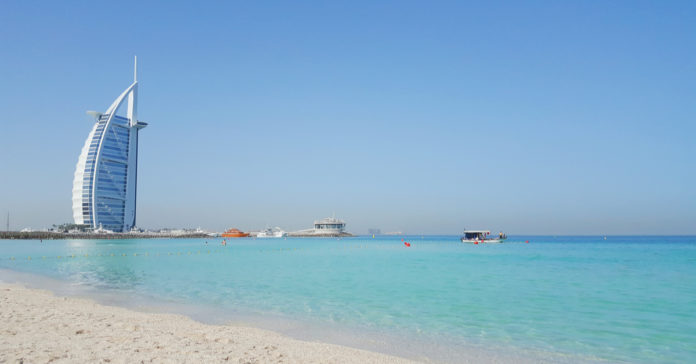The United Arab Emirates is the world’s happiest Muslim country, according to a report by the United Nations.
The annual World Happiness Report ranks nations according to factors including GDP per capita, healthy years of life expectancy, freedom, and perceived corruption in government and business. The report is based on data from analytics researcher Gallup which asked people in 149 countries to rate their own happiness.
The UAE is ranked 25th in the index closely followed by Saudi Arabia in 26th place. Other Muslim nations in the top 50 include Kosovo, Uzbekistan, Kazakhstan and Kuwait.
The United Arab Emirates is a federation of seven states that has grown from a quiet backwater to one of the Middle East’s most important economic centres.
Before oil was discovered in the 1950s the UAE’s economy was dependent on fishing and a declining pearl industry. But since oil exports began in 1962, the country’s society and economy have been transformed.
Although traditionally conservative and authoritarian in government, the UAE is one of the most liberal countries in the Gulf, with other cultures and beliefs generally tolerated.
In 2020 it became the first Gulf state to establish diplomatic relations with Israel.
Subscribe to our newsletter and stay updated on the latest news and updates from around the Muslim world!
According to Amnesty International, the UAE authorities subject detainees to arbitrary arrest and detention, torture and enforced disappearance. The authorities also restrict freedom of expression, imprison government critics and hold them in dire conditions.
Migrant workers, which constitute the vast majority of the population, remain tied to employers under the kafala (sponsorship) system, which makes them vulnerable to labour abuses and exploitation.
On the other hand, war-torn Afghanistan was classed the least happy nation in the world.
Afghanistan has suffered from such chronic instability and conflict during its modern history that its economy and infrastructure are in ruins, and many of its people are refugees.
The Taliban were ousted by a U.S.-led invasion in 2001 but have recently been making a comeback. The internationally-recognised government set up following the adoption of a new constitution in 2004 has struggled to extend its authority beyond the capital and to forge national unity.
Other Muslim nations in the bottom 30 places in the list included Tunisia, Lebanon, Palestine, Jordan, Egypt, and Yemen. There was no data published for war-torn Syria.
Meanwhile, Finland topped the poll for the fourth year running with Denmark in second place, then Switzerland, Iceland and the Netherlands. The UK fell from 13th to 17th place.
This year’s Happiness Report was faced with a unique challenge in trying to understand what effect the coronavirus pandemic has had on well-being. Of all the factors usually supporting happiness, the most important for explaining COVID-19 death rates were people’s trust in each other, and confidence in their governments.
More than two million people have died worldwide since the outbreak and the threat of variants and uneven policy decisions on how to respond has created uncertainty in what the future holds.


















